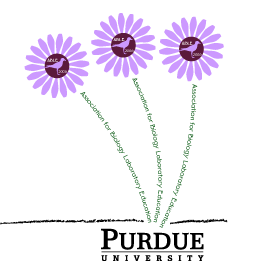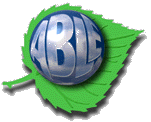Site Links
![]() ABLE 2007: University of Kentucky, Lexington, KY June 5-9. Host: Ruth Beattie
E-mail: rebeat1@uky.edu
ABLE 2007: University of Kentucky, Lexington, KY June 5-9. Host: Ruth Beattie
E-mail: rebeat1@uky.edu


Mini Workshop
Friday June 9
Sandland, Gregory J., Jillian T. Detwiler and Dennis J. Minchella
Understanding Ecological Principles Through Parasitological Pedagogy
Parasites comprise over 50% of the organisms on earth, yet they receive little
attention in either lecture or laboratory components of ecology courses. This
is a major shortcoming given the important role that these organisms play in
ecosystem dynamics. The following exercises utilize parasitic organisms in
both the field and the laboratory to emphasize key ecological concepts and
familiarize students with the parasitic lifestyle. These labs focus on a relatively
common group of parasites (trematode worms) that use aquatic snail hosts for
initial development (intermediate hosts) and utilize either mammals or birds
to complete their life cycle (definitive hosts). The first field-based exercise
investigates the role that environmental variables play in generating community
patterns of parasites. Students sample snails from a variety of habitats around
a local pond, transport these hosts back to the laboratory, and identify the
trematode species present. Parasite data are combined with habitat information
to identify environmental processes influencing parasite community composition.
The second exercise is designed to test the prediction that intraspecific competition
for resources increases with increasing numbers of co-occurring individuals.
In order to do this, students necropsy the intestines of birds (chickens) experimentally
infected with different numbers of trematodes. Fitness parameters (growth,
reproduction, etc) are determined for individual parasites and comparisons
are made between worms from high and low density conditions. In combination,
these exercises not only teach students key ecological ideas, but they also
introduce students to experimental design, field-sampling methodologies, and
parasite identification. In general, these labs are relatively easy to perform
(for both instructors and students) and provide novel means of teaching (and
reinforcing) traditional ecological concepts in exciting unconventional ways.
Participants in this workshop will receive a glossary of parasitogical terms
and a taxonomic key for identifying snail parasites.